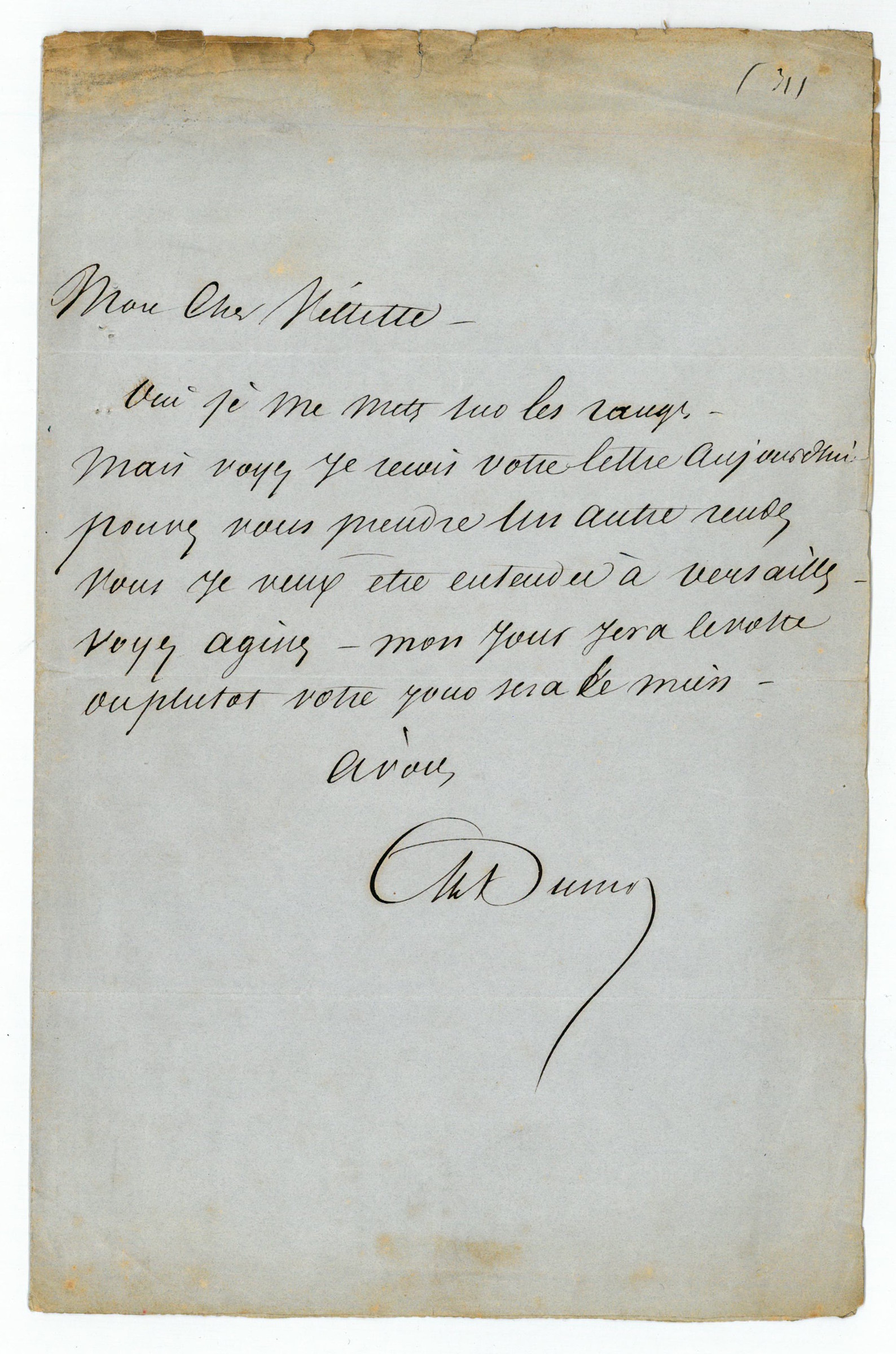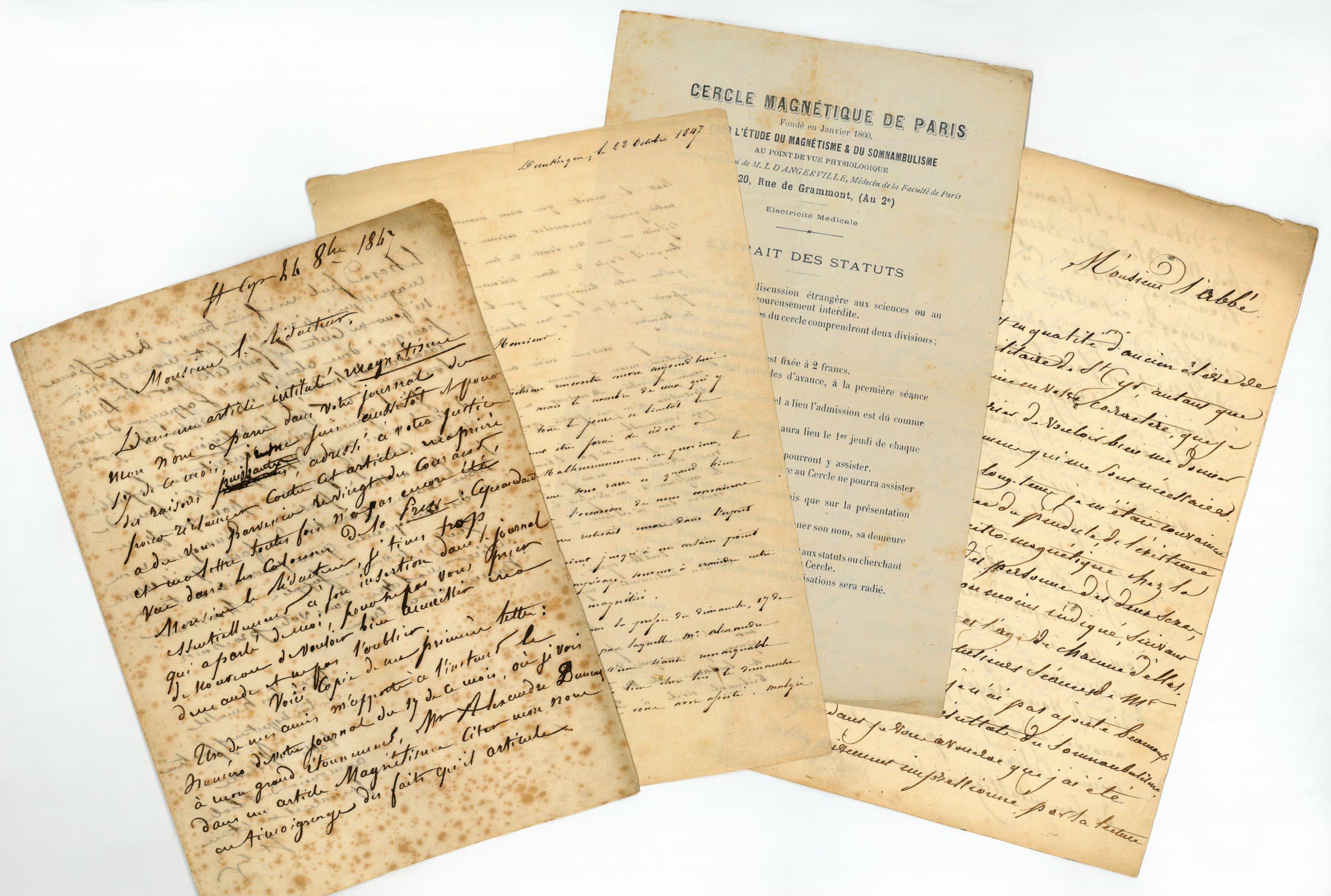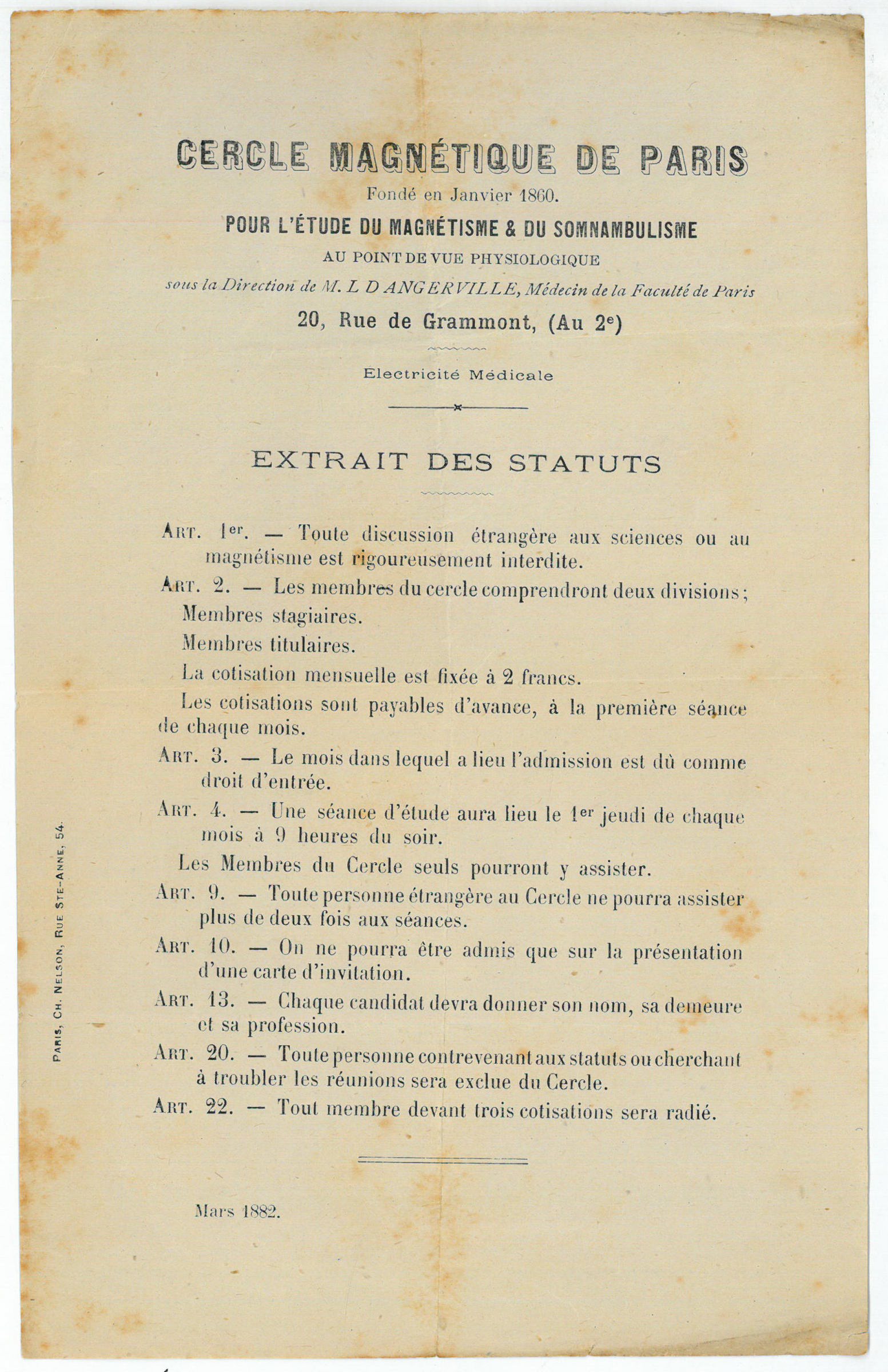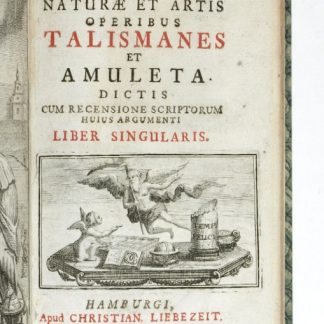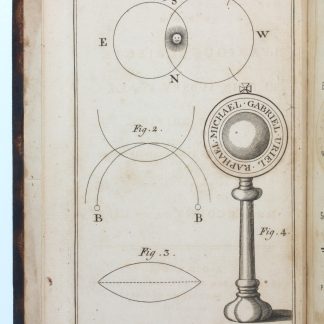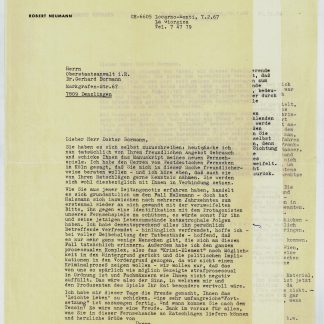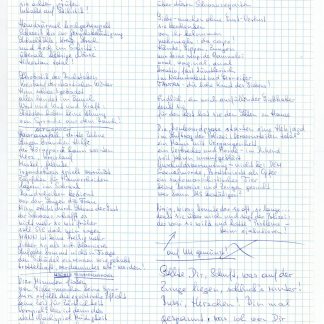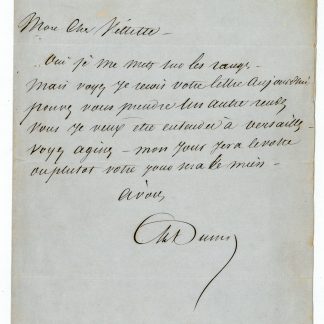The very real consequences of a magnetist séance for a French priest
Autograph letter signed.
8vo. ½ p. on bifolium.
Together with three letters in relation to a magnetist séance organized by Alexandre Dumas. 8vo. Altogether 8 pp. Further includes a printed leaflet of the "Cercle Magnétique de Paris" from March 1882.
€ 4.500,00
Highly interesting collection of letters relating to a séance with the celebrated medium Alexis Didier, organized by Dumas on 10 October 1847. The autograph letter by Dumas is addressed to the Abbé Villette, chaplain at Saint-Cyr, who was present at the séance and is central to Dumas's description of the event in an article for La Presse from 17 October 1847 entitled "Magnétisme". Dumas asks the Abbé for a meeting in Versailles in response to a letter: "Oui je me mets sur les rangs. Mais voyez je reçois votre lettre aujourd'hui. Pouvez vous prendre un autre rendez-vous je veux être entendu à Versailles - voyez agréez - mon jour sera le votre où plutôt votre jour sera le mien". While the context of this undated letter is not specified, it may have been written in the aftermath of the publication of the article that had affected Villette greatly. On 24 October 1847, Villette wrote to the director of La Presse, Émile de Girardin, quoting an earlier letter that he had asked Girardin to publish in reply to Dumas's article and renewing this request: "In an article entitled 'Magnetism' my name appeared in your journal of the 17th inst.; immediately and for important reasons I appealed to your justice, objecting to this article. My request should have appeared on the 20th inst. and my letter has nevertheless not been seen among the columns of La Presse. [...] Here is a copy of my first letter: a friend of mine has just brought me the issue of your journal from the 17th inst., wherein I see, to my great astonishment, M. Alexandre Dumas in an article [on] Magnetism, citing my name in testimony to the facts that he articulates. Mere chance brought me to this séance of magnetism: I did not express my opinion either for or against the facts cited by M. Dumas; why then does he choose to stress my being a priest, who must remain a stranger to everything that is not religion? I have never liked to talk publicly about myself but today I am forced to overcome this repugnance because I cannot allow anyone to invoke my name to vouch for the facts he states and for the consequences that could be drawn from them" (transl.).
Indeed, Dumas' article from 17 October 1847 states that Villette joined the séance accidentally and more or less unsuspectingly. As Villette and Didier did not know each other and Villette was not dressed in his cassock, Dumas asked the "somnambulant" Didier about Villette's profession and his work as a chaplain at Saint-Cyr. To the great astonishment of the participants, Didier gave the correct answers, at least according to the article.
It is unclear whether Villette had to fear negative consequences from the clergy or his employer for being invoked in an article on magnetism. He did, however, receive at least two letters from readers of La Presse, who were eager to know more about the séance and attached great importance to Villette's opinion on magnetism; these letters form part of the collection. On 22 October 1847, Jules Bouly de Lesdain, a judge in Dunkerque, wrote in reference to the article, finally to ask Villette: "In spite of all the merit we all recognize in our great novelist as a writer, we are a little suspicious of the deviations of his imagination, and when it comes to serious matters, we need further testimony than his to assure us that he has not been mistaken, that he could not have been mistaken. I would like to believe in magnetism, but I shall still hesitate unless a respectable testimony such as yours, dear Sir, proves to me that my hesitation is unfounded, that my doubts are not reasonable. I do not have the honour of knowing you, dear Sir, but I have the confidence to address you, convinced that you will enlighten me and tell me whether I should believe or not" (transl.).
Even more curious is a long letter by Colonel Julien Combe, commander of the fortress of Soissons and "former pupil of the military school of Saint-Cyr" from 27 October 1847, that invokes Villette's priesthood in requesting a final answer to the question whether "God has deigned to grant to some privileged creatures like Alexis such a large share of his immeasurable intelligence" and whether Villette really "arrived unexpectedly at M. Alex.dre Dumas' house, in such a way that he could not warn Alexis, and provide him with the necessary information on your account". Should this be true, Combe "will believe in it as in the mysteries of our religion", and asks Villette for Alexis Didier's contact information.
We do not know whether or not Alexandre Dumas actually believed in magnetism, but occult phenomena featured prominently in his novels. The article on the séance was certainly just as much an advertisement for his serialized novel "Joseph Balsamo" that is indirectly referenced as it is testimony to his fascination with magnetism.
Alexis Didier (1826-86) was one of the most famous mediums and clairvoyants of his time. He was on familiar terms with Alexandre Dumas and inspired his characterization of the Italian occultist Joseph Balsamo.
The letter by Dumas with several minor tears to the margins minimally affecting the text and stronger browning to the upper margin. The letter by Villette shows strong foxing and minor tears partly affecting the text; the letters to him have minimal browning and tears.

